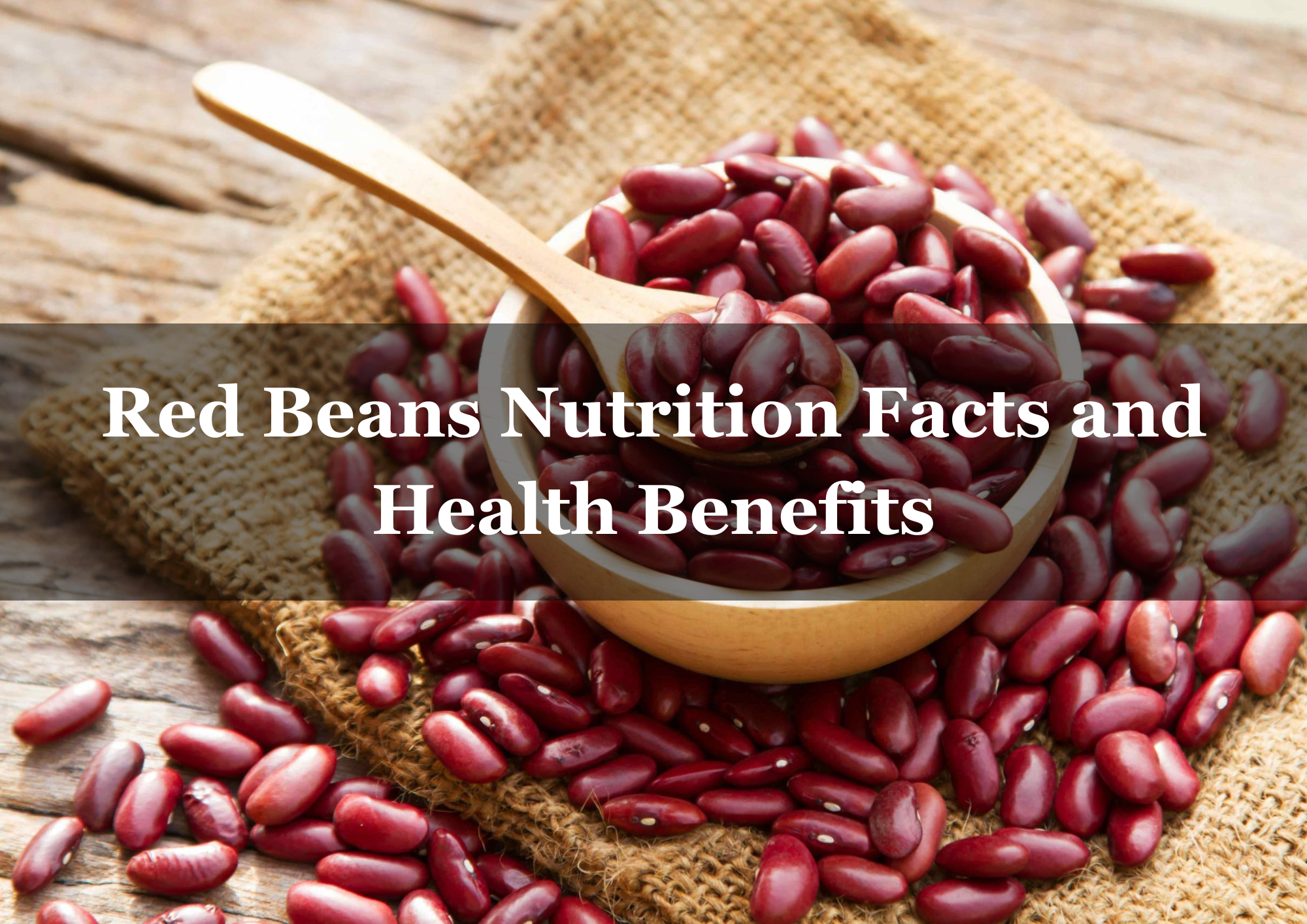
Red Beans Nutrition Facts and Health Benefits
In the realm of nutrition, certain foods stand out for their exceptional health benefits, and red beans are undoubtedly among them. These tiny legumes pack a powerful punch when it comes to nutritional value and offer a plethora of health benefits. From boosting heart health to aiding in weight management, the virtues of red beans are abundant. Most people are eagerly searching for Red Beans Nutrition Facts and Health Benefits. Here you get detailed information about Red Beans Nutrition Facts and Health Benefits in this article.

Source: Hurst Beans
Nutritional Profile
Red beans, also known as kidney beans, are rich in essential nutrients that are vital for maintaining optimal health. A mere one-cup serving of cooked red beans contains:
- Protein: Red beans are an excellent source of plant-based protein, offering around 15 grams per cup. This makes them a valuable addition to vegetarian and vegan diets, helping to meet daily protein requirements.
- Fiber: Fiber is essential for maintaining digestive health and ensuring regular bowel movements. Red beans are brimming with dietary fiber, providing approximately 13 grams per cup. Consuming foods high in fiber also promotes satiety, making it easier to manage weight.
- Complex Carbohydrates: Red beans are a complex carbohydrate, meaning they provide a steady release of energy and help stabilize blood sugar levels. This makes them an ideal choice for individuals looking to maintain consistent energy throughout the day.
- Micronutrients: Red beans are loaded with essential vitamins and minerals, including folate, potassium, magnesium, iron, and zinc. These nutrients play key roles in various bodily functions, such as supporting immune function, promoting bone health, and aiding in energy metabolism.
- Low in Fat: Red beans are naturally low in fat, making them a heart-healthy food choice. Eating a diet low in saturated and trans fats can lower the risk of heart disease and stroke.
Health Benefits
The nutritional prowess of red beans translates into a myriad of health benefits, making them a valuable addition to any diet. Some of the notable health benefits of consuming red beans include:
- Heart Health: The high fiber content of red beans can help lower cholesterol levels and reduce the risk of heart disease. Additionally, their potassium content helps regulate blood pressure, further promoting cardiovascular health.
- Weight Management: The combination of protein and fiber in red beans can help promote feelings of fullness and satiety, reducing overall calorie intake. Including red beans in meals can support weight management efforts by curbing hunger and preventing overeating.
- Blood Sugar Control: The complex carbohydrates found in red beans are digested slowly, leading to gradual increases in blood sugar levels. This can help prevent spikes and crashes in blood glucose levels, making red beans a suitable option for individuals with diabetes or those looking to manage blood sugar levels.
- Digestive Health: The fiber content of red beans supports digestive health by promoting regular bowel movements and preventing constipation.
- Bone Health: Red beans are a good source of minerals like calcium, magnesium, and phosphorus, which are essential for maintaining strong and healthy bones. Including red beans in your diet can help support bone density and reduce the risk of osteoporosis.
- Anti-inflammatory Properties: Red beans contain phytonutrients with anti-inflammatory properties, which may help reduce inflammation in the body and lower the risk of chronic diseases associated with inflammation, such as arthritis and cardiovascular disease.
Incorporating Red Beans Into Your Diet
Fortunately, incorporating red beans into your diet is both easy and delicious. These versatile legumes can be used in a variety of dishes, adding flavor, texture, and nutritional value. Here are some creative ways to enjoy red beans:
- Red Bean Chili: Whip up a hearty pot of chili using red beans as the star ingredient. Combine them with tomatoes, onions, bell peppers, and spices for a flavorful and nutritious meal.
- Red Bean Salad: Toss cooked red beans with fresh vegetables, herbs, and a tangy vinaigrette dressing for a refreshing and satisfying salad.
- Red Bean Soup: Simmer red beans with broth, vegetables, and herbs to create a comforting and nourishing soup that’s perfect for chilly days.
- Red Bean Dip: Blend cooked red beans with garlic, lemon juice, and olive oil to make a creamy and nutritious dip for crackers, vegetables, or pita chips.
- Red Bean Stew: Combine red beans with root vegetables, greens, and your favorite seasonings to create a hearty and wholesome stew that’s sure to satisfy.
In conclusion, red beans are a nutritional powerhouse packed with protein, fiber, vitamins, and minerals. Their impressive health benefits make them a valuable addition to any diet, promoting heart health, aiding in weight management, supporting digestive health, and much more. Whether you enjoy them in chili, salads, soups, or dips, incorporating red beans into your meals is a simple and delicious way to boost your overall health and well-being. So, next time you’re planning your grocery list, be sure to include these vibrant legumes for a nutritious and satisfying culinary experience.




